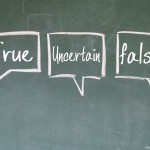
Debates about the meaning and value of IQ have long raged; doubtless, they will continue to do so.
This article, by a scholar steeped in the field, argues that — even for those who see real benefit in focusing on IQ — it is essential to distinguish between fluid intelligence (the ability to solve new problems) and crystallized intelligence (knowledge already stored in long-term memory).
If you’ve read Todd Rose’s book The End of Average, you will remember that “talent is always jagged.” That is: two people who have the same IQ might nonetheless be very different thinkers — in part because their score might result from dramatically different combinations of fluid and crystallized subscores.
In short: even advocates for IQ see potential perils in misusing this well-known metric.



